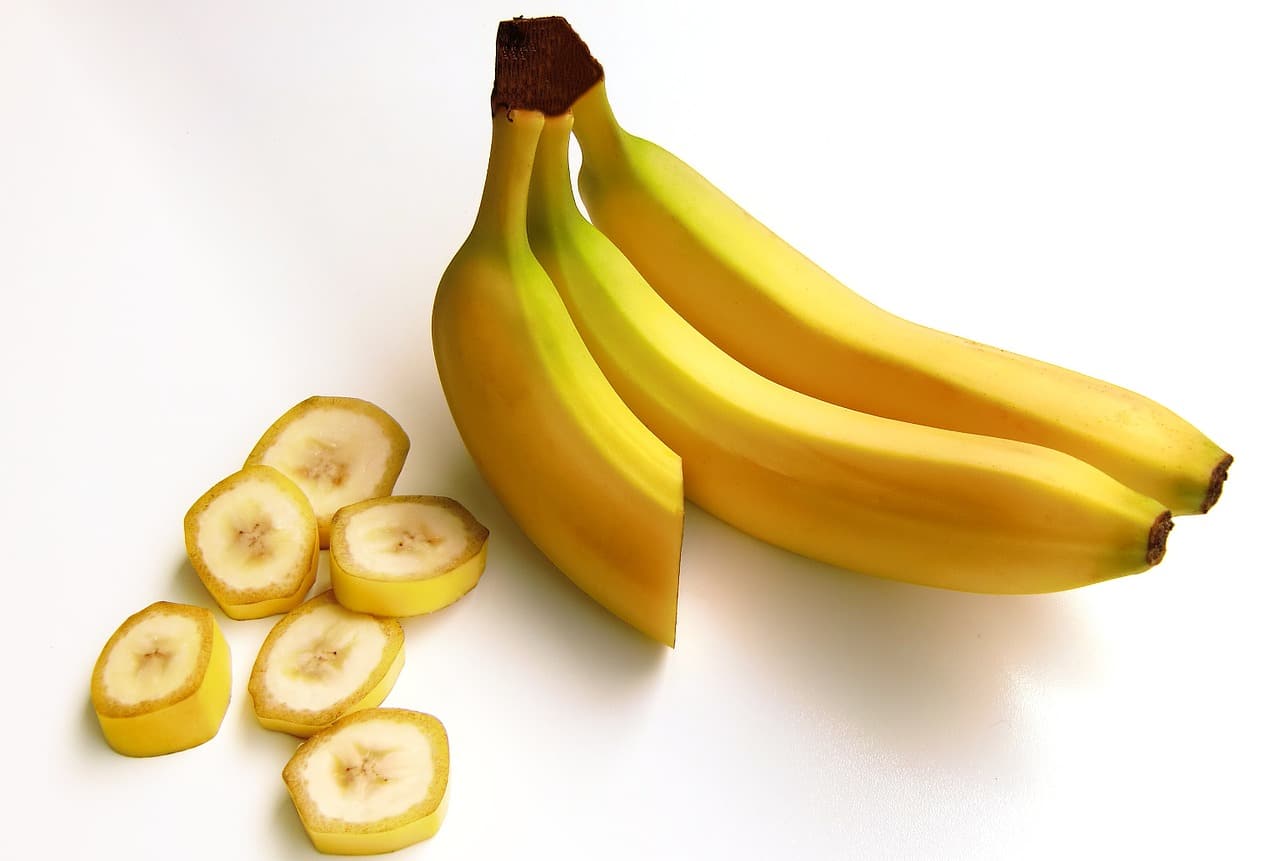Quinoa is a gluten-free alternative for wheat that is known to have a lot of benefits apart from its high fibrous nature. In addition to being great for your digestive health, a moderate and healthy addition of quinoa into your diet can have positive effects on your blood sugar and cholesterol level. Quinoa, due to its many benefits, is often regarded as a superfood.
3. Banana
Though there is also a long list of fibrous fruits that’ll ensure healthy digestion upon their addition to your diet, banana appears to be one of the most important and abundant sources that you can easily get your hands on. Not only will the fibrous nature of bananas help you by stimulating the movement of the bowel, but its electrolytic and potassium content would help in energizing your day as well.

4. Chia Seeds
Considered to be an exceptional source of fiber, the work of chia seeds for the betterment of your digestive system is very similar to the work of probiotics. The consumption of these seeds helps in supporting the healthy growth of gut bacteria that is responsible for the effective absorption of the nutrients.
5. Fennel Seeds
Often added to the meal for its flavorful and minty taste, fennel sides can also provide you with an adequate intake of dietary fiber. Apart from their nutritional content, fennel seeds also contain some active plant compounds, which give them a certain anti-inflammatory property and lower the risk of digestive issues such as bloating and gas.
6. Papaya
The dietary fiber content of papaya is a much-needed nutrient for the breakdown of protein molecules present in your system. But most importantly, the presence of an active compound called papain, which itself is a strong digestive enzyme, makes it a great addition to your diet if you want to improve your digestive health.

7. Ginger
Ginger, for its various health benefits, has been a part of various ancient medicinal traditions throughout the world. Ginger’s fibrous and antioxidant nature has made it the topmost ingredient that your meal can have to make it digestion-friendly. Some other benefits of ginger include lower cholesterol levels, lower sugar levels, and the prevention of blood clotting.
Related Reading:
Best Alternatives of Ginger That Can Replicate The Warm And Zesty Flavor
8. Leafy Vegetables
The combination of vitamin E and fiber would prove to be more than what you could ask for when it comes to your digestive health. Some examples of these digestion-friendly leafy vegetables are broccoli and spinach, both of which appear dark-green due to their nutrient-dense nature. These green vegetables also contain a significant amount of magnesium, a mineral that helps in the relaxation of the inner intestinal walls and eases bowel movement, thus improving digestion.
9. Apples
A dietary fiber known as pectin can be abundantly found in apples. This fiber is commonly broken down into friendly bacteria by the small intestine. Moreover, this same dietary fiber is responsible for adding bulk to the stool and stimulating bowel movement, thus lowering the risk of indigestion.
Related Reading:
Incredible Benefits of Apples to know
Worst Foods For Digestion
Incorporating items that are good for digestion won’t be the only thing that you have to do to improve your digestive health, cutting down on other harmful items is also something that you need to take into consideration. Here are some food items that you’ll need to avoid for that perfect metabolism:
1. Fried Foods
Fatty foods can prove to be disastrous for digestion. Oils, which are quite rich in fat, must be consumed in moderation and it must only accompany other nutrition-rich food items. Fried food, just like any other fatty food, tends to move the undigested waste through the system, which often causes diarrhea and other digestive issues.

2. Citrus Fruits
Yes, despite their high fiber and antioxidants (vitamin C) content, loading up on citrus fruits might increase the level of acidity in your stomach, which could further lead to irritation and stomach ulcers.
3. Beans
Ever wonder why beans are often soaked in water for hours before being consumed? Well, the reason behind this is the complex sugar content of beans. Though they are rich in protein and fibers, both of which help in the promotion of digestive health, these items are also loaded with complex sugar. And since the body has no active enzyme that could break these complex molecules, the gut bacteria have to do the work. This results in the production of gas.
The Takeaway
The bottom line is that for every benefit that you want to experience, there is something that you’ll need to leave behind. In this case, you can say goodbye to everything deep-fried, but that doesn’t mean that your tastebuds would be out of flavor. There is a variety of ingredients at your disposal, all you have to do is an experiment.













